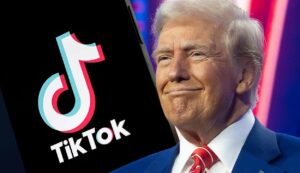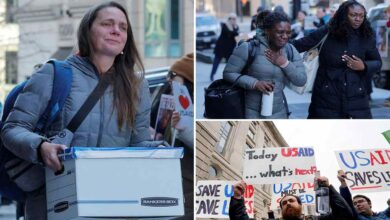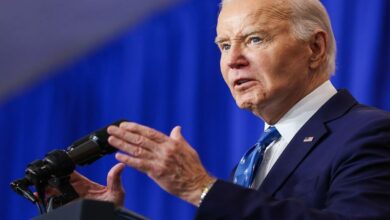Trump calls on the US Supreme Court to overturn the TikTok ban
Washington: According to the New York Times, US President-elect Donald Trump has submitted a brief to the US Supreme Court asking the judges to strike down a statute that would force the well-known social media company TikTok to sell its US business or shut down by January 19.

There have been requests for a postponement so that the next president may personally address the matter because of the deadline’s timing—days before Trump’s inauguration.
President Trump does not address the fundamental question of the First Amendment in his brief; the court will discuss the case next month. Whether Congress infringed on free expression rights by essentially prohibiting TikTok is at the heart of the First Amendment dispute. Trump’s brief instead emphasizes his capacity to settle the issue politically after becoming in office.
“President Trump opposes banning TikTok in the United States at this juncture,” said the brief. “He seeks the ability to resolve the issues at hand through political means once he takes office.” The brief also highlighted Trump’s “deal-making expertise,” which it says makes him ideally suited to negotiate a solution that will safeguard the interests of TikTok’s 170 million US users as well as national security.
The brief also emphasizes Trump’s significant social media presence, particularly his 14.7 million TikTok followers, which demonstrate his understanding of the platform’s value for free speech, including political discourse. “President Trump is one of the most powerful, prolific, and influential users of social media in history,” claimed the statement. “Consistent with his commanding presence in this area, President Trump currently has 14.7 million followers on TikTok with whom he actively communicates, allowing him to evaluate TikTok’s importance as a unique medium for freedom of expression, including core political speech.”
TikTok’s own brief challenges the law’s implementation, claiming that the government’s strategy violates the First Amendment by limiting expression without enough justification.
The Biden administration responds that the legislation is an essential measure to safeguard American national security. According to the administration, there are serious concerns associated with TikTok’s Chinese government supervision, especially with regard to data privacy and possible influence activities. “The law addresses the serious threats to national security posed by the Chinese government’s control of TikTok, a platform that harvests sensitive data about tens of millions of Americans and would be a potent tool for covert influence operations by a foreign adversary,” the brief said.
According to The New York Times, TikTok users and content producers have strongly reacted to the administration’s defense of the legislation, claiming that it infringes upon their First Amendment rights.
While the US and China are involved in a geopolitical competition, the law’s broad measures against TikTok unfairly restrict Americans’ freedom of speech, according to a brief submitted on behalf of users.
According to the user brief, “Nothing like the act here has ever been countenanced,” “Its suppression of Americans’ speech flies in the face of our history, tradition, and precedent.”
The Supreme Court’s review of TikTok’s legal case was framed by these conflicting filings. On January 10, the Court will hold a special session to hear arguments on TikTok’s lawsuit as well as a different complaint brought by the platform’s developers and users. The results of these hearings will have a big impact on free expression and national security.
Because of worries over Chinese influence, the rule requires ByteDance, the parent firm of TikTok, to sell the app’s US operations or risk being banned. According to the authorities, TikTok is subject to excessive influence from the Chinese government because of its ownership structure, which includes ByteDance’s Chinese control.
Due to its Cayman Islands incorporation and Beijing headquarters, ByteDance is governed by Chinese laws.
The Supreme Court’s ruling, which is expected before the deadline of January 19, will impact TikTok’s future in the US and influence the larger conversation about the relationship between technology, national security, and First Amendment rights.





